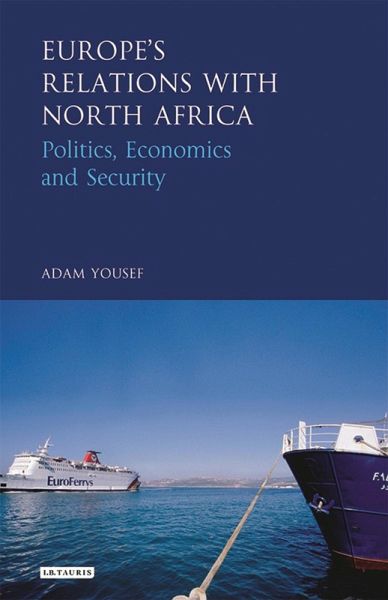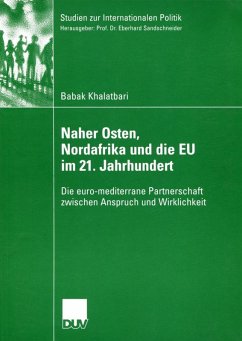
Europe's Relations with North Africa (eBook, PDF)
Politics, Economics and Security
Versandkostenfrei!
Sofort per Download lieferbar
108,95 €
inkl. MwSt.
Weitere Ausgaben:

PAYBACK Punkte
54 °P sammeln!
The rapid evolution of events in the European, Middle Eastern, and North African spheres has reinvigorated the debate on Euro-Mediterranean relations. Since 1995 these relations have operated under the auspices of the Barcelona Process, which laid the foundations for three initiatives that define European policy towards neighbouring states: the Euro-Mediterranean Partnership, the European Neighbourhood Policy, and the Union for the Mediterranean. This book scrutinises these initiatives through a socioeconomic prism. Adam Yousef reviews how appropriate these initiatives have been in promoting s...
The rapid evolution of events in the European, Middle Eastern, and North African spheres has reinvigorated the debate on Euro-Mediterranean relations. Since 1995 these relations have operated under the auspices of the Barcelona Process, which laid the foundations for three initiatives that define European policy towards neighbouring states: the Euro-Mediterranean Partnership, the European Neighbourhood Policy, and the Union for the Mediterranean. This book scrutinises these initiatives through a socioeconomic prism. Adam Yousef reviews how appropriate these initiatives have been in promoting socioeconomic development in North African states, projects the long-term implications of these policies and investigates whether they can reduce the gap in social outcomes across the Mediterranean Basin over time. Using Morocco as a case study, this book employs a mixed-methods approach, combining qualitative and quantitative data as well as economic theory. It reveals not only that the Barcelona Process has had a limited impact on promoting social outcomes in Morocco, but crucially that it is also unlikely to do so in the future, suggesting a new approach may be required.













